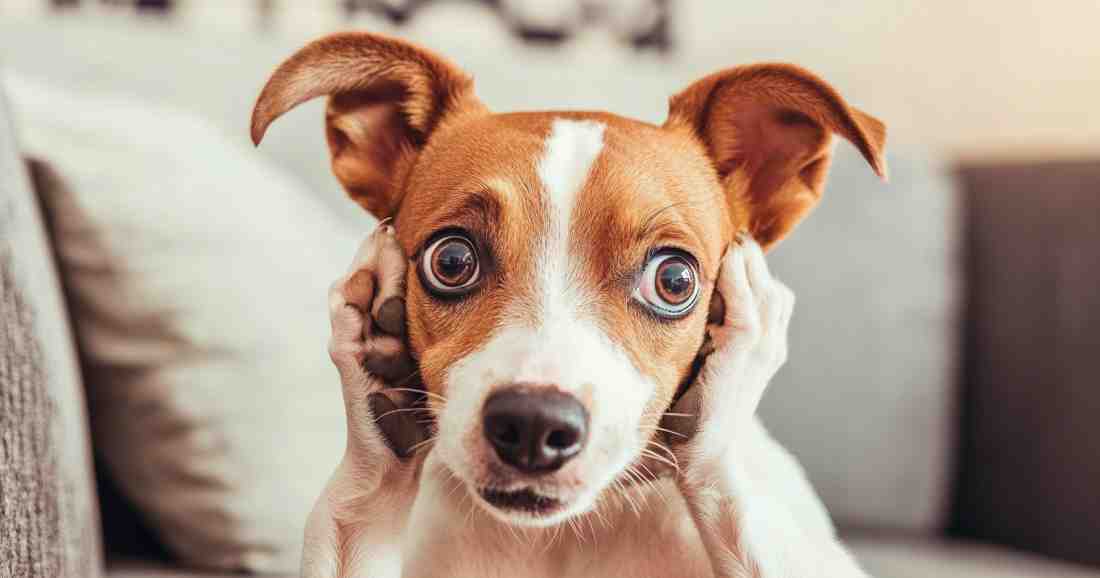
Uncover whether your dog’s fear is impacting your bond with the empathetic Is My Dog Scared of Me Quiz, Find Out If Your Dog Feels Nervous Around You! Have you noticed your dog avoiding eye contact, cowering, or acting hesitant around you? The Is My Dog Scared of Me Quiz helps determine whether your pup feels anxious, uncertain, or even afraid in your presence. While some dogs naturally have timid personalities, fear can also develop due to past experiences, lack of socialization, or unintentional reinforcement of fear-based behaviors. Understanding the causes, signs, and solutions can help you rebuild trust and create a safe, loving bond with your dog.
Dogs can become fearful for various reasons, and it’s not always due to mistreatment. Some common causes of fear include:
- Inconsistent or harsh training – Dogs thrive on clear expectations. If training is unpredictable or involves punishment, they may become anxious.
- Sudden loud noises or movements – Dogs sensitive to sound or unexpected actions may associate them with fear.
- Past trauma or negative experiences – Rescue dogs or those with a rough history may take longer to trust new owners.
- Lack of socialization – Dogs that haven’t been exposed to different environments or people might be fearful in new situations.
- Body language and tone of voice – Even unintentional cues, like standing over your dog or using a harsh tone, can make them feel intimidated.
Signs That Your Dog Might Be Scared of You
Recognizing the signs of fear can help you address the issue and make your dog feel more comfortable. Common indicators include:
- Avoiding eye contact – A fearful dog may glance away or keep their head down.
- Tucking their tail between their legs – This is a classic sign of fear or submission.
- Cowering or shrinking away – A nervous dog might lower their body or back away when approached.
- Trembling or excessive yawning – Stress-related behaviors like shaking, licking lips, or excessive yawning can indicate discomfort.
- Hiding or keeping distance – If your dog avoids being near you, they might feel unsafe.
- Sudden urination – Fear-based urination, especially when being approached, signals nervousness.
Is My Dog’s Fear a Serious Problem?
Mild nervousness in certain situations is normal, but if your dog consistently shows fear around you or in specific situations, it could indicate a deeper issue. Fear-based behaviors can lead to:
- Avoidance of interaction – A fearful dog may hesitate to come when called or avoid being touched.
- Defensive aggression – Some dogs react with barking or snapping if they feel cornered.
- Anxiety-related behaviors – Destructive chewing, excessive panting, or pacing can be linked to underlying stress.
How to Help a Dog That’s Scared of You
If your dog seems fearful, building trust and confidence is key. Here are some ways to help them feel more secure:
- Use positive reinforcement – Reward calm, confident behavior with treats and praise.
- Avoid punishment – Yelling or scolding a fearful dog can increase their anxiety.
- Respect their space – Let them come to you instead of forcing interactions.
- Move calmly and speak gently – Sudden movements or loud voices can make a nervous dog uneasy.
- Engage in confidence-building activities – Simple training, play, and interactive games help reinforce trust.
- Be patient and consistent – Trust takes time, especially for rescue dogs or those with past trauma.
Take the Is My Dog Scared of Me Quiz Now!
Still unsure whether your dog is afraid of you? The Is My Dog Scared of Me Quiz evaluates their behavior, reactions, and body language to help you determine if they feel comfortable or nervous around you. Understanding your dog’s emotions is the first step in strengthening your bond and making them feel safe. Take the quiz now!
